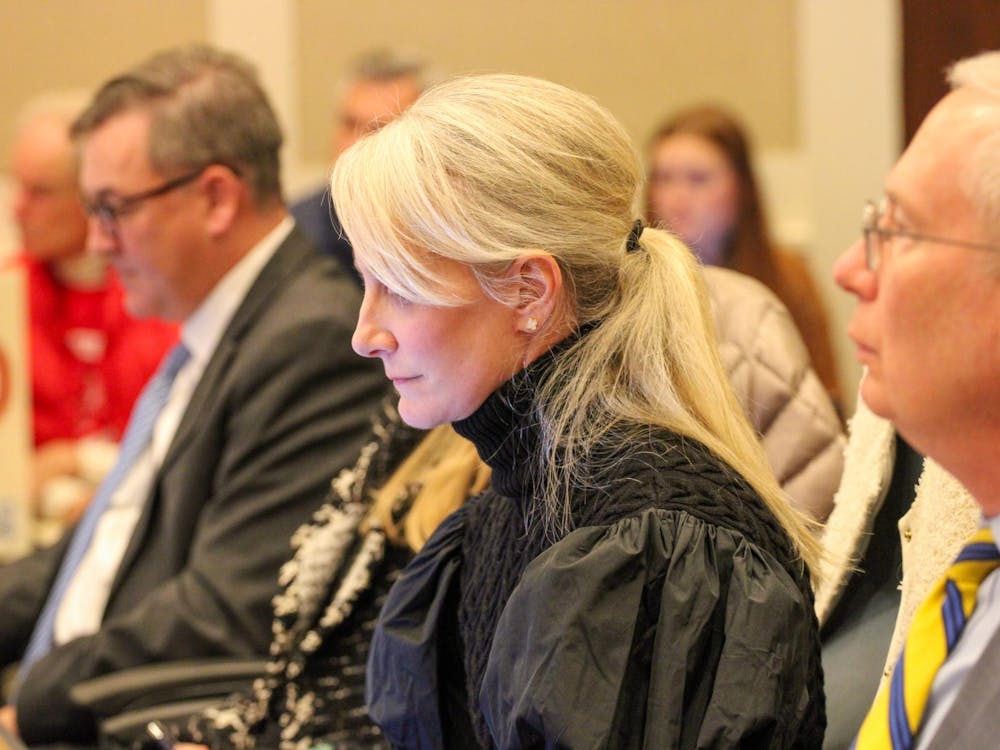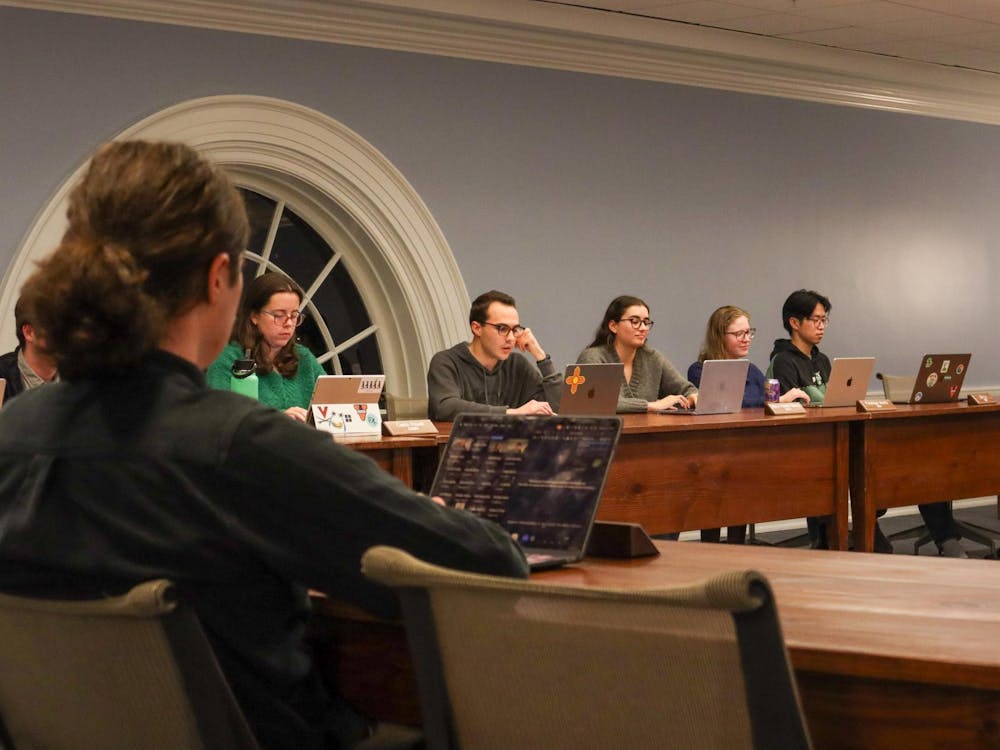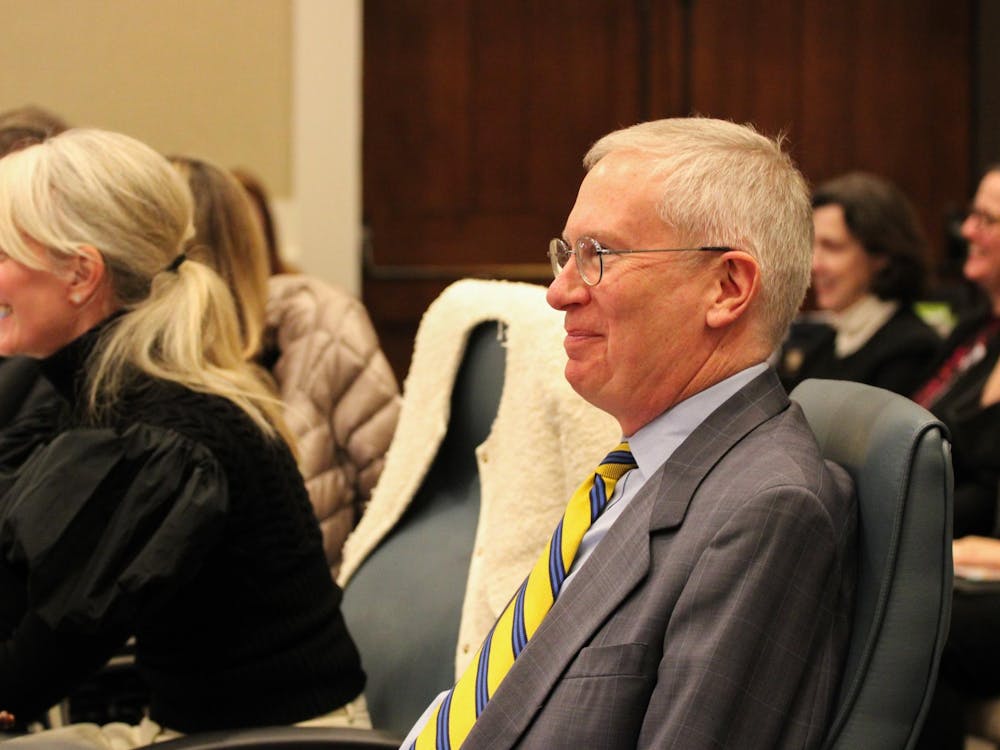Following this year's drop in the number of admissions applications from black prospective students, administrators, faculty and students are expressing concern about an increasingly strained racial atmosphere at the University.
The University received 326 fewer black student admissions applications for the class of 2004, a significant 25.3-percent drop from last year, as well as a 16-percent overall drop in applications.
The applications drop came on the heels of a year-long debate surrounding the validity of the University's current admissions practices, which use race as a factor.
Board of Visitors member Terence P. Ross's comments last September to The Daily Progress about the University's admissions policies "clearly reaching a little bit down our academic standards to recruit black students" may have lessened the University's prestige, some University community members said.
"Comments made by Ross could have weighed in minds of prospective applicants, even though the University's official stance was to support diversity," said Mike Costa, director of networking for the Black Student Alliance.
Another possible factor that may have contributed to the decline in black student applications is the information from the admissions policies studies published by the Center for Equal Opportunity and the Center for Individual Rights last year.
The CEO and the CIR each are private conservative Washington, D.C.-based public interest groups. The CEO supports research dealing with public policy issues, while the CIR is a nonprofit public interest law firm.
The CEO study, entitled "Preferences at the University of Virginia: Racial and Ethnic Preferences in Undergraduate Admissions, 1996 and 1999," stated that "U.Va. frequently rejects many white, Hispanic, and Asian applicants with higher test scores and high school ranks compared to black admittees" and that "1999 admissions data...show an even stronger degree of preference given to blacks over whites, 111.11 to 1 in 1999."
African-American Affairs Dean M. Rick Turner said he felt the sponsors of the study "discovered a crude and costly way to discourage African- American applications."
Turner said he believed those who support the findings of the study "attack the selective universities for their success in recruitment, enrollment, admissions, retention and graduation of African-American students."
He added that the University has a black graduation rate of 87 percent: A rate that is higher than five Ivy League universities and the highest black graduation rate of any U.S. public university.
Faculty Senate Chairman David T. Gies said he has heard from several black acquaintances that the negative publicity regarding preferential treatment for black applicants did contribute to the drop in applications, but he hoped that it had not.
"I seriously hope that the publicity and the rather unfortunate discussion we had about admission vis a vis minorities last year were not deleterious to the numbers of applications," Gies said.
Black Fraternal Council President Michael McPheeters agreed that negative publicity affected application numbers negatively.
"It was serious. It played a big factor in the decline. My friend, who was a potential applicant, felt that U.Va wasn't a welcoming environment for black students anymore," McPheeters said.
Some students are concerned about what the effects of negative publicity might mean for black students already enrolled at the University.
"For some black students, the negative publicity can decrease their confidence in their ability to be and belong here," said Jovanna Frazier, a student member of the National Association for Advancement of Colored People.
But at the opposite end of the spectrum, some University community members said they feel that University admissions policies unfairly boost chances for minority admissions.
Former Student Council Rep. Justin Pfeiffer said other selective universities may seem like a more attractive option to black students.
"If [minority students] are in high demand, why shouldn't they go" to a higher-ranked school than the University, he said.
In light of the drop in applications, many are left wondering how to solve the problem and increase interest in the University.
Turner said that to fix the problem "we have to launch a major offensive. African-American alums have to step up to the plate. President Casteen can't do it himself."
But Gies said that perhaps this dip in applications is not indicative of a lowering of people's perceptions of the University.
"It might not be at all significant - maybe it's part of the traditional ebb and flow of college admissions," he said.
(Cavalier Daily Focus Editor Amy Shapiro contributed to this article.)
|
|
||
| Ethnicity | Number of fewer applications from 1999 | Percent drop |
| Asian | 104 | -6% |
| Black | 326 | -25% |
| Latino | 72 | -12.5% |
| Native American | 27 | -35.5% |
| White | 2244 | -17.9% |
| International | 3 | -0.4% |
| Overall | 2776 | -14% |
|
Statistics provided by the Office of Admissions |
||






